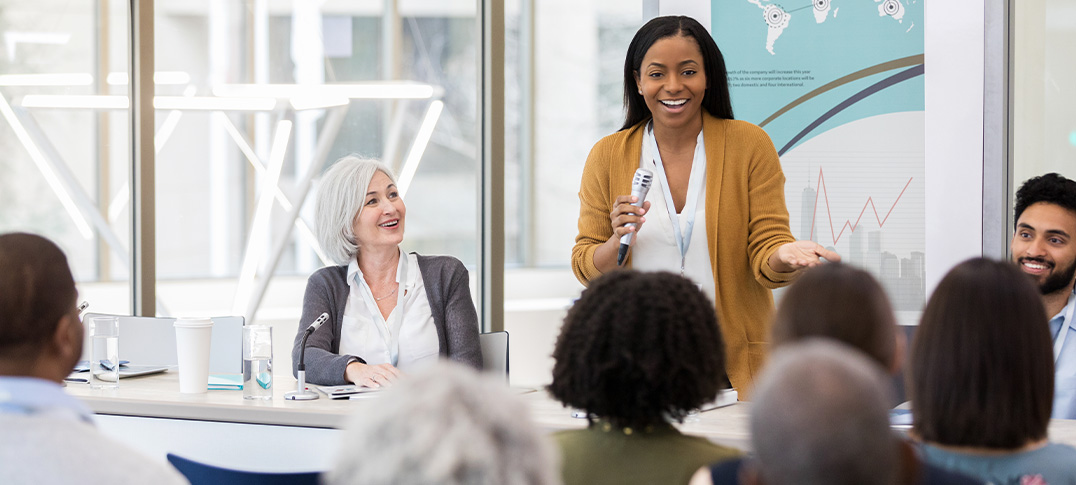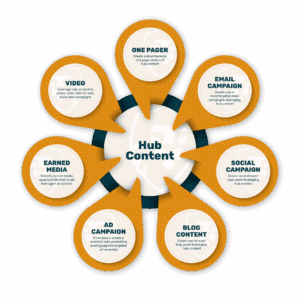Mueller Communications has a longstanding relationship with the League of Wisconsin Municipalities. We are proud to partner with communities across the State, assisting in times of crisis, supporting communications efforts, and providing strategic guidance.
In recent years, all throughout Wisconsin, we have seen firsthand how municipalities have faced tough decisions about how to meet community needs with limited resources. How can elected officials and municipal staff make decisions – including decisions that require action from members of the community, like voting in a referendum – if they only have input from a sliver of the electorate?
Engaging members of a community in conversation and in governance helps support a functional municipality.
Note: This blog post originally appeared as an article in the September 2022 issue of the League of Wisconsin Municipalities’ “The Municipality” magazine.
Engage your community in the process.
An informed and engaged community is the beating heart of democratic decision-making. Local elected officials and municipal staff are far better positioned to set and implement effective policy when they have quality feedback and involvement from a broad, representative cross-section of the community. It often takes more than posting a public agenda with a public comment period to engage a community.
To ensure the entire community voice is heard – not just the voices of a few vocal residents – requires a purposeful, intentional approach. While not easy, the work to educate and engage residents can pay huge dividends in building community trust, enhancing government decision making and tackling tough issues. There are many steps communities can take to cultivate an information-sharing mindset.
Understand your community.
Ask questions.
The first step in encouraging community participation is identifying how to effectively share information to educate members of that specific community. Often, it can be as simple as asking the question. Most municipalities have an existing survey tool that can be leveraged to craft a survey asking residents about their communications preferences. A well-crafted survey is a great starting point, but like posting an agenda, creating the survey on its own will not drive engagement. Publicizing the survey through existing communications channels like local news outlets, social media, newsletters and e-mail signatures as well as tailored communications like direct mail and / or text alerts can ensure every resident of a municipality is aware of the opportunity to provide input.
Alignment and brand consistency matter: Often communities have multiple communications channels – for example a website, a newsletter and one or more social media channels – but the content, brand and voice are often inconsistent. Residents benefit from a clear, consistent approach across all channels.
Print is not dead: While Facebook is a great driver of education and information, traditional newspaper stories remain a critically important way for members of the community to learn about what’s happening in their City.
Municipal newsletters are valuable: Community members prefer to sign up to receive notices and information through an email newsletter, ideally in a way that is customized to their specific interests.
Be inclusive: For Fond du Lac, translations into Hmong and Spanish would enable the municipality to better engage all members of the community. Each community should consider how it can ensure its communications are inclusive of all members of the community.
Build trust.
Establishing consistent, clear communication builds trust between a community and its government, increases engagement and reduces the potential for confusion. Based on the survey results assessing the most effective education methods, Mueller Communications is working with the City of Fond du Lac to use this feedback and those preferred channels to bolster proactive communication efforts within the constraints of limited staff bandwidth. The team is building a resource library for department leaders to leverage – including templates for social media graphics, examples of effective news releases or newsletter blurbs, and drafted common messages – to improve communication while easing the process for those involved.
Reward feedback.
Attending meetings and sharing feedback takes time away from community members’ families, occupations and other obligations. When a resident overcomes the hurdle of attending a meeting, listening to the discussion at hand and sharing their viewpoint, it is important for the municipality and elected officials to recognize the value of that feedback and thank community members for their participation – both verbally and by taking action.
Dig in when challenges arise and referendums are being considered.
In the best of times, when operations are running smoothly, communication and engagement are important, but the need for community input can quickly reach “critical” status when tough, high-impact decisions are on the horizon. One example is a municipality’s ask for increased funding through a community referendum.
- Phase one: Do your homework, show your work: We often recommend taking the time to develop an “Options Assessment” report that visually and verbally details the complexities of the issue at hand, including historic information about how the municipality arrived at the situation they are in, how the issue has changed over time, what solutions have been attempted, the results and what options are available moving forward.
Phase two: Gather feedback through a survey that provides context: Once that report has been developed and shared with members of the community through their preferred communications channels (potentially including website and social media posts, news coverage, and discussion at council meetings), it’s time to work with a survey partner to develop and distribute a community survey to all households in a municipality. This approach both solicits opinions from residents and acts as an educational tool, with context and data surrounding each question. A survey also helps identify the concerns and areas of confusion the municipality should address with its community.
Phase three: Bring the message to the community: If, after a community survey, residents support moving forward with a referendum, it’s time for a comprehensive education effort, often deployed over the three months leading up to election day. This final outreach phase is defined by several key pieces, including key messages that ensure consistent communication; answers to frequently asked questions that elected officials and staff can leverage; information sessions guided by a presentation to provide opportunities for public questions; outreach and presentations to community organizations; and publication of facts and impacts on all communication channels the community may use, including the municipality’s website, social media channels, mailers and postcards, and/or newsletters.
An engaged electorate doesn’t just happen.
An engaged and informed electorate doesn’t just happen. It takes work, resources, time, talent and – perhaps most important – listening. By learning what your residents want and need in terms of communication, you can ensure your communications have a return on investment, especially when tough decisions necessitate the entire community to come together to take a seat at the table to learn, make a decision, and vote.



